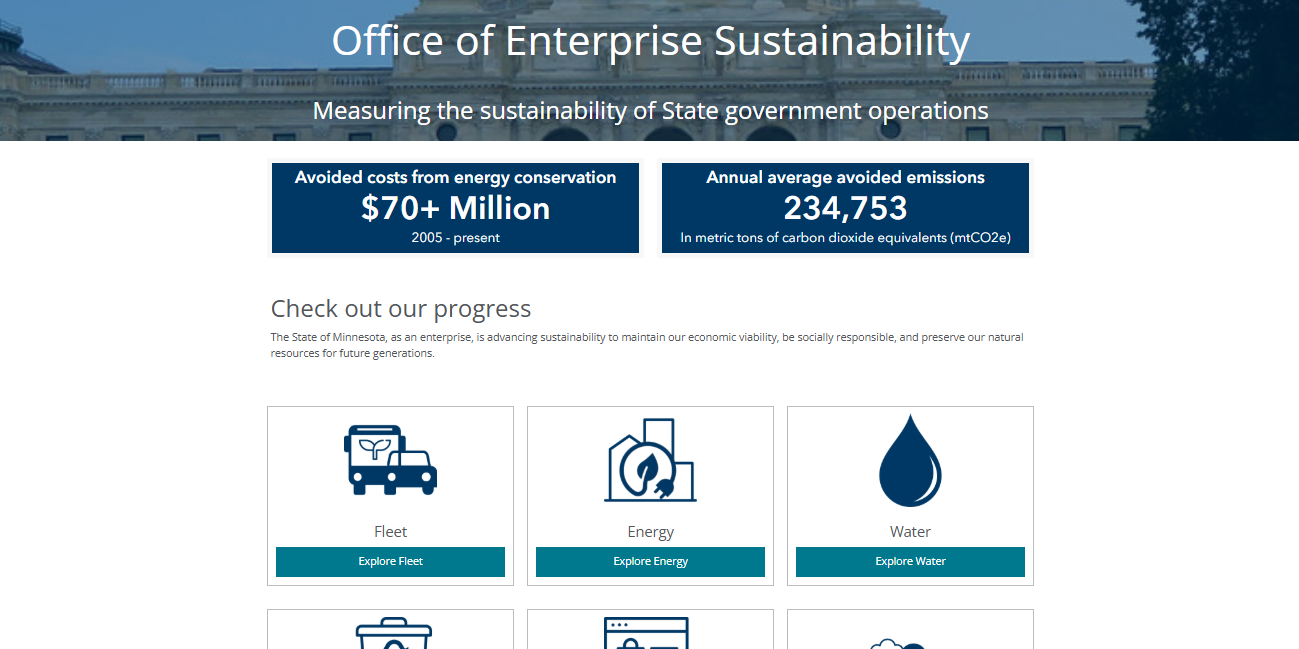Office of Enterprise Sustainability
The State of Minnesota defines sustainability as meeting the economic, social, and environmental needs of the present without compromising the ability of future generations to meet their needs.
"As with any large organization, operating Minnesota's government generates pollution, consumes energy and natural resources and contributes to climate change. Sustainable practices by our government can positively impact the environment, human health, and the economy by preventing pollution, reducing energy and natural resource consumption, and minimizing climate impacts. We must continue to lead by example, ensuring that we maintain our efforts so that our sustainability goals are met." - Governor Walz (Executive Order 19-27)
State agencies are fostering a culture of sustainability to:
- reduce operating costs,
- be socially responsible, and
- preserve our natural resources for future generations.
Our sustainability goals:
- Greenhouse Gas Emissions: reduce greenhouse gas emissions 50% by 2030 from 2005 levels.
- Energy Consumption: reduce building energy use (per square foot) 30% by 2030 from 2017 levels.
- Sustainable Procurement: include sustainable elements in 50% of all issued solicitations, as applicable.
- Fleet Fossil Fuel Consumption: reduce State Fleet consumption of fossil fuels 30% by 2030 from 2017 levels.
- Solid Waste: achieve a 75% combined recycling and composting rate of solid waste by 2030.
- Water Consumption: reduce building water use (per square foot) 15% by 2030 from 2017 levels.
Track state government’s progress towards these goals by visiting sustainability.mn.gov.
At the Office of Enterprise Sustainability (OES), we advance sustainability in state operations by:
- Providing a tracking and reporting framework and completing reporting annually at Sustainability.mn.gov.
- Conducting enterprise-level planning to identify and address challenges and opportunities and provide technical assistance for planning at the agency level.
- Implementing projects and providing technical assistance to agencies in the areas of communications, engagement, solid waste, energy efficiency, renewable energy, and fleet electrification.
- Championing sustainability in funding discussions and sharing best practices.

